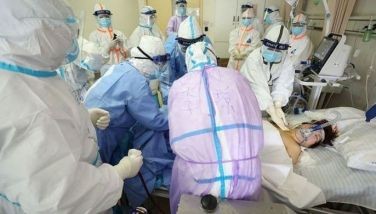EDITORIAL - Vulnerable children
A survey in the last quarter of 2013 showed that more Filipinos described themselves to be poor and food-poor. Many of those represented in the survey surely come from the areas devastated last year by Super Typhoon Yolanda and the powerful earthquake in the Visayas as well as the communities razed by the three-week siege in Zamboanga City.
Those who lack the most basic need for survival are also the most vulnerable to exploitation. A UK-based children’s charity has expressed concern that children are being recruited for sex and labor exploitation in Samar, one of the provinces hardest hit by Yolanda. Among the most vulnerable to human trafficking are those orphaned by the monster howler. In Leyte alone, authorities have listed 109 children who lost their parents during the typhoon.
The government has given assurance that measures are in place to protect children in the disaster areas. This campaign, however, needs sufficient resources and a stronger push. Even without super typhoons and earthquakes, children in the nation’s impoverished communities are vulnerable to all forms of abuse. Young Filipino children are featured in cyber porn sites. Adolescents are sold for sex. Teenagers are deployed overseas as maids or sex workers, using forged documents that make them additionally vulnerable to abuse.
Due to extreme poverty, some of the traffickers of children are their parents or guardians themselves. This is one of the biggest problems in the campaign against human trafficking. It is also not unusual to find willing victims, especially among older teenagers who are prepared to do anything to help their families cope with the challenges of day-to-day survival.
That willingness to do anything tends to be stronger in the disaster areas. The government, in coordination with sectors involved in the rehabilitation effort, must make it clear to the survivors that they need not endure abuse and exploitation to restart their lives.
- Latest
- Trending

























